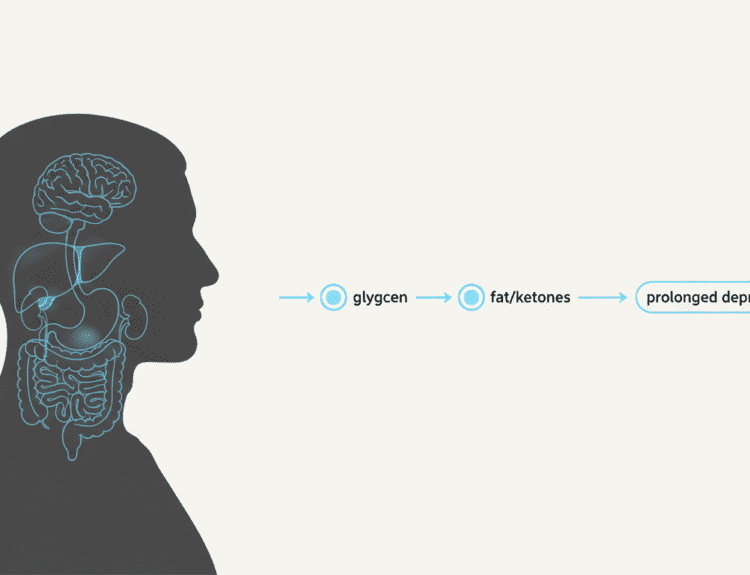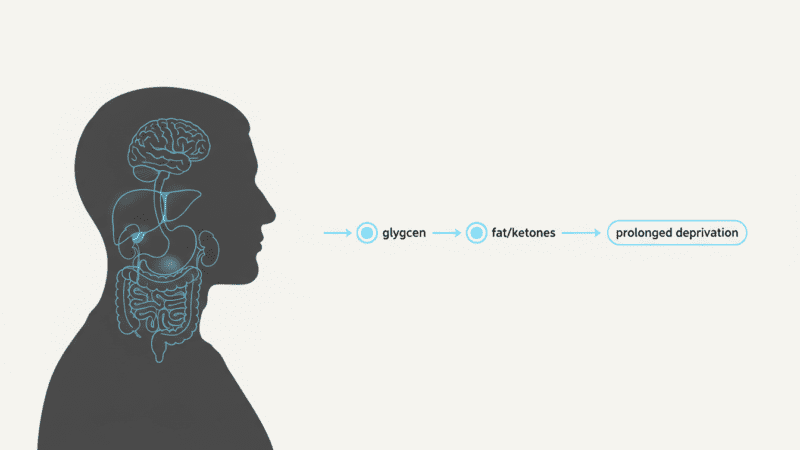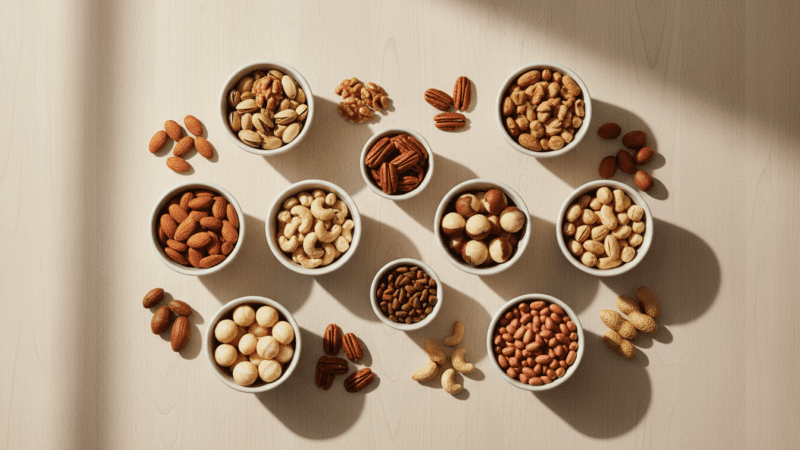The human body is remarkably resilient, designed to survive periods of food scarcity. But what actually happens when you stop eating? How long can a person survive without food, and what are the physical and psychological effects as starvation progresses? Let’s explore the science behind starvation, from the first day without food to the limits of human endurance.
Introduction
Fasting and starvation have been part of human history for millennia, whether due to religious practices, survival situations, or medical conditions. While the body can survive for weeks without food, the journey is fraught with profound changes. As Dr. Ancel Keys, a pioneer in starvation research, once said:
“Starvation, and the knowledge of it, is as old as humanity itself.”
Understanding what happens during starvation is not just a matter of curiosity—it’s crucial for health professionals, aid workers, and anyone interested in human biology.
Day 1: The Glycogen Phase

On the first day without food, your body relies on glucose for energy. Glucose is stored in the liver and muscles as glycogen.
- Glycogen stores: The average adult has about 400–500 grams of glycogen, enough to fuel the body for roughly 24 hours.
- Blood sugar: The liver breaks down glycogen to maintain blood sugar levels.
- Symptoms: You may feel hungry, irritable, and have difficulty concentrating.
As Dr. Mark Mattson, a neuroscientist at Johns Hopkins, notes:
“The body is well-equipped to handle short-term fasting. Most people can go a day without food with little more than discomfort.”
Days 2–3: The Gluconeogenesis Phase
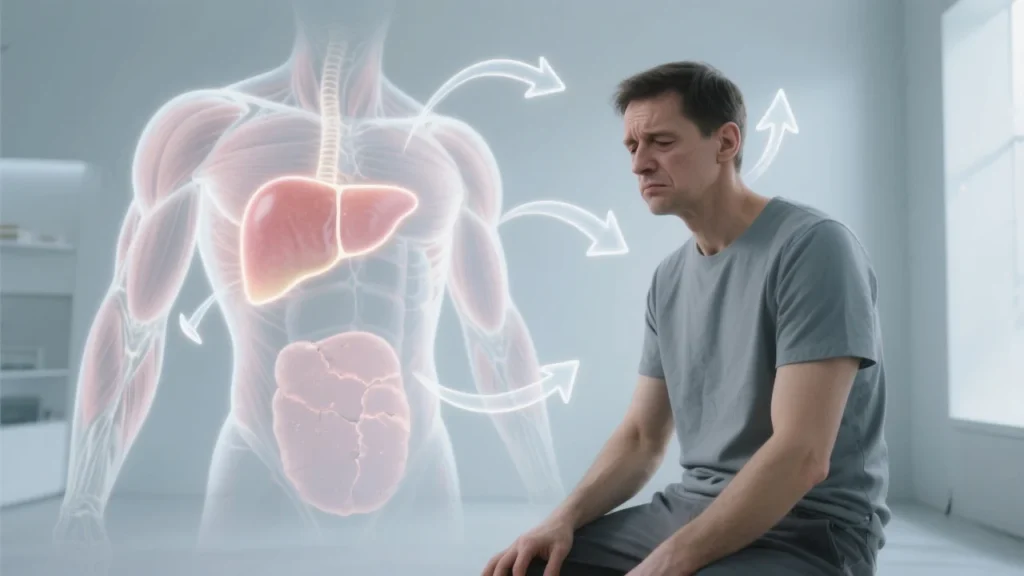
Once glycogen is depleted, the body turns to other sources for energy.
- Gluconeogenesis: The liver starts converting amino acids (from muscle tissue) and glycerol (from fat) into glucose.
- Muscle breakdown: The body begins to break down muscle protein to supply the brain and red blood cells with glucose.
- Fat breakdown: Fat stores are mobilized, and the body starts producing ketones as an alternative energy source.
You may experience fatigue, headaches, and mood swings as your body adapts.
Days 4–7: The Ketosis Phase

By the end of the first week, the body shifts into ketosis.
- Ketone production: The liver converts fat into ketone bodies, which become the primary fuel for the brain and muscles.
- Muscle preservation: The rate of muscle breakdown slows as the body adapts to using fat for energy.
- Physical effects: You may notice bad breath (from acetone), weakness, and dehydration if not drinking enough fluids.
Nutritionist Dr. Lisa Mosconi explains:
“Ketosis is a survival mechanism. It allows the brain to function when glucose is scarce, but it’s not a long-term solution.”
Weeks 2–3: Starvation Mode
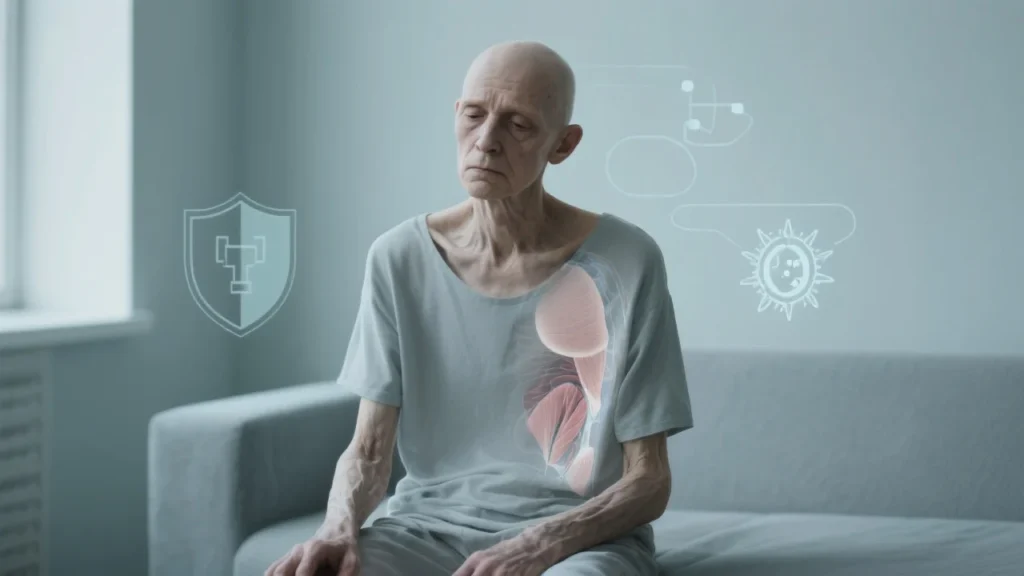
As starvation continues, the body enters a critical phase.
- Severe fat loss: Fat stores are rapidly depleted.
- Muscle wasting: The body resumes breaking down muscle for energy as fat reserves dwindle.
- Immune suppression: The immune system weakens, increasing susceptibility to infections.
- Mental changes: Apathy, depression, and cognitive decline may set in.
Weeks 4 and Beyond: Organ Failure
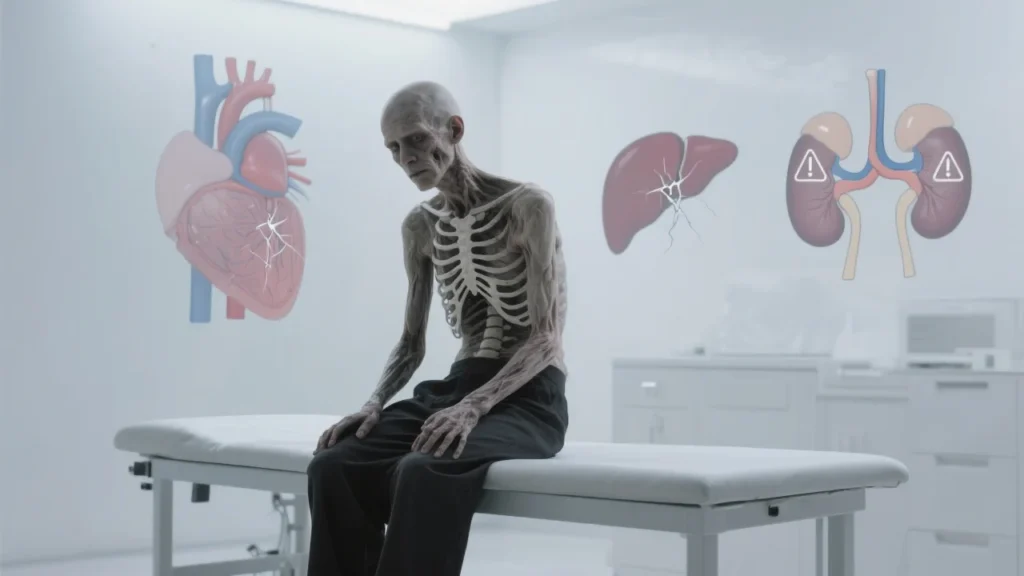
With no food intake, the body’s systems begin to fail.
- Vital organ damage: The heart, liver, and kidneys start to deteriorate.
- Electrolyte imbalance: Dangerous shifts in sodium, potassium, and other minerals can cause cardiac arrhythmias and sudden death.
- Death: Most people cannot survive more than 6–8 weeks without food, though this varies based on body fat, hydration, and overall health.
A famous case is that of Mahatma Gandhi, who survived 21 days of total starvation (with water) during his hunger strikes. However, survival times can be shorter or longer depending on individual factors.
How Long Can a Human Survive Without Food?
The answer depends on several factors:
- Hydration: Survival is much shorter without water—typically only 3–7 days.
- Body fat and muscle mass: More reserves mean longer survival.
- Health status: Chronic illnesses, age, and stress can shorten survival time.
On average, a healthy adult can survive between 45 and 61 days without food, provided they have access to water. However, irreversible damage to organs and the brain can occur well before death.
Conclusion
Starvation is a complex, multi-stage process that pushes the human body to its limits. From the initial use of glycogen to the breakdown of fat and muscle, and finally to organ failure, the journey is marked by profound physical and psychological changes. While the body is built to endure short-term fasting, prolonged starvation is life-threatening and should never be undertaken without medical supervision.
As the World Health Organization warns:
“Starvation is a medical emergency. Early intervention can save lives and prevent permanent damage.”




